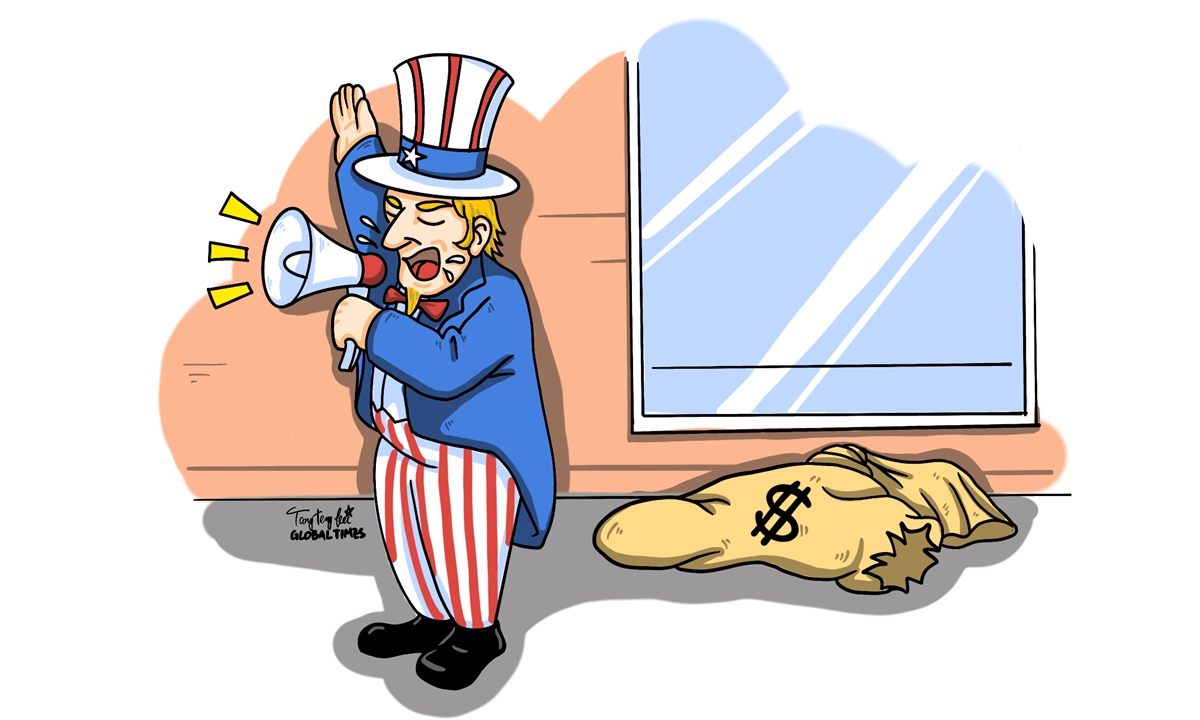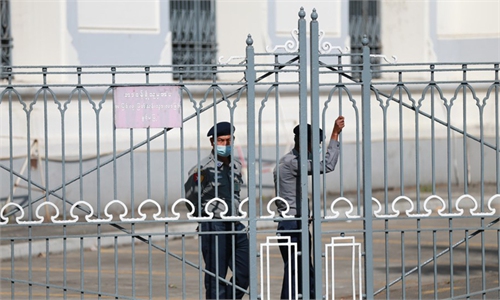
Illustration: Tang Tengfei/GT
The US on Monday announced the suspension of all diplomatic and trade engagement with Myanmar following recent violent developments in the Asian country. In a statement, US Trade Representative Katherine Tai said that the suspension will remain in effect until "the return of a democratically elected government."While some US media outlets claim that the move would not stop trade between the two countries, it is essentially unilateral economic sanction imposed by the world's largest economic power on a small but sovereign country and a serious escalation from the US' previously verbal interference in Myanmar's internal affairs.
Economic sanctions by one country have never proved helpful in ending political and social crisis in another country. The US' move is by no means the answer to resolving the situation in Myanmar. Even worse, the sanctions will only hurt Myanmar's economy and its people's livelihood, which have already been badly affected by the situation.
China and some other ASEAN countries have expressed concerns about the situation in Myanmar, but have been sticking to a neutral position based on the principle of noninterference into other countries' internal affairs. China has said on many occasions that it hopes all parties can keep calm and deescalate the situation through dialogue and consultation.
In stark contrast, the US has constantly interfered with other countries' internal affairs through unilateral actions and economic coercion. The economic sanctions against Myanmar are just the latest example manifesting the US' growing indulgence in wielding the sanction sticks.
Since launching a trade war, the US has imposed hefty tariffs on Chinese goods and a series of other economic sanctions on China. In addition, Russia, Iran and Venezuela are all among the targets of US economic sanctions in recent years.
Even allies are not off limits for the US to slap economic sanctions on. In the latest development, the US has also threatened to impose tariffs on goods from Austria, Britain, India, Italy, Spain and Turkey in retaliation for their digital services taxes.
The US' frequent use of economic sanctions underscores its economic hegemony in the world stage. And a mixture of complacency about its power and anxiety about defending its hegemony may explain why the US has taken unprecedented unilateral and bullying actions on China and others over the past several years, which already have deep implications for the global economy.
Since taking office, US President Joe Biden claimed that "America is back" and pledged return to diplomacy. But from what we have seen so far, its return hasn't been of any help to the world economy that is still stuck in the pandemic-battered crisis. Instead, it has been busy cajoling allies to form political front while imposing and threatening sanctions to exert pressure on others. Such an approach not only hurt others' interests but also the US' own interests as well as global peace and development.
Forced by the US actions, China has been firmly safeguarding its interests and beating back US aggression. However, as the US is likely to expand the scope of economic sanctions as reflected by its sanctions on Myanmar and threatened tariffs on other countries, it is time for major economies that are seeking development to join hands and stop the US from further hurting other countries and the global economy.



